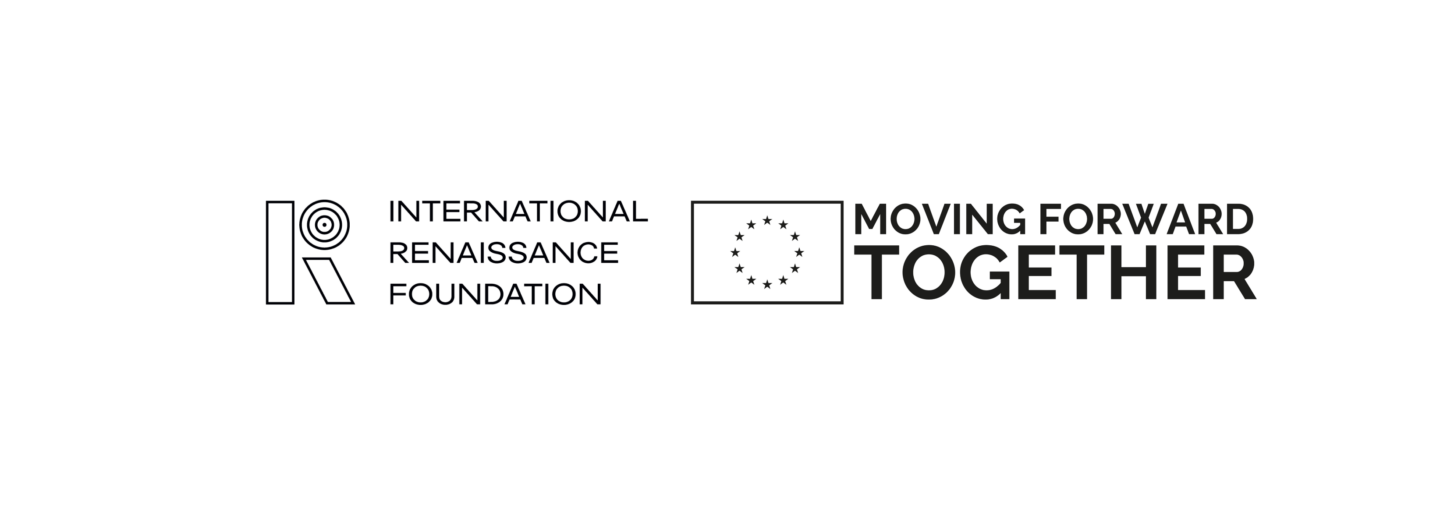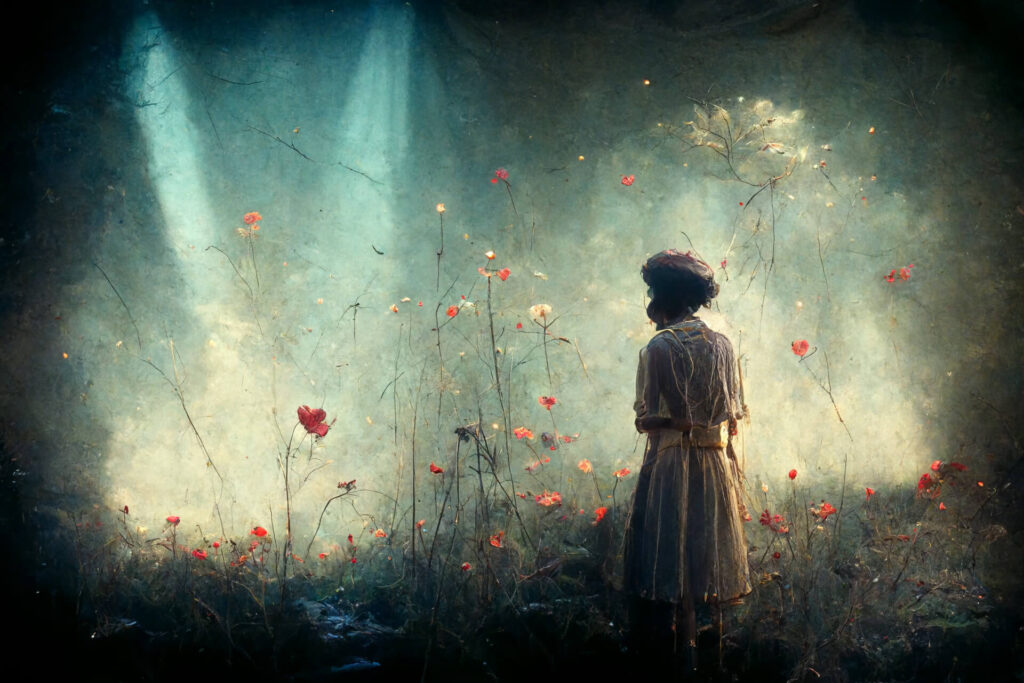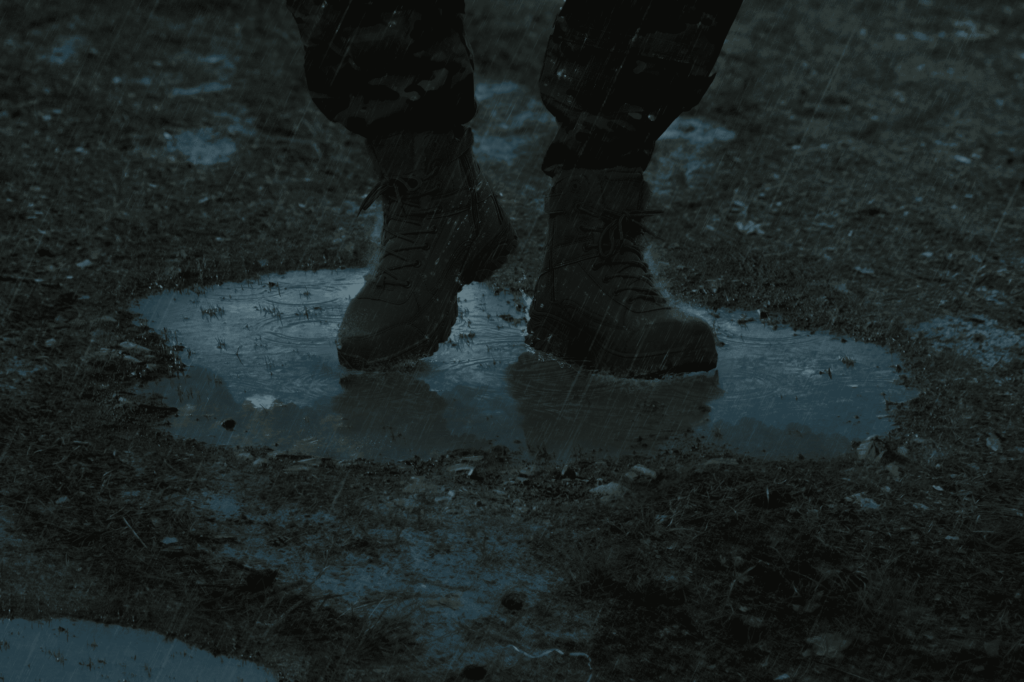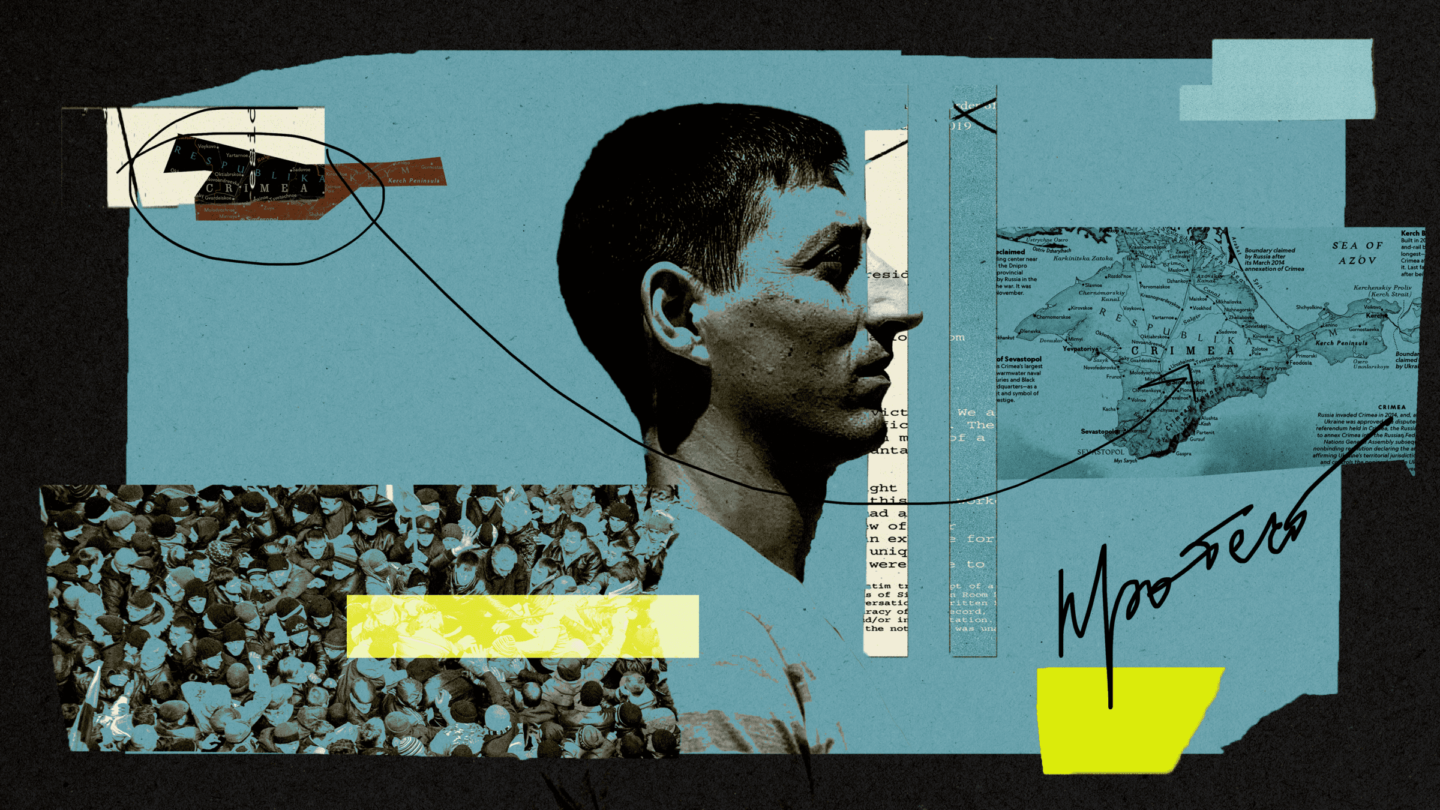§§§
From a speech at the Lviv Media Forum on May 25, 2023.
§§§
Why is it important to document the truth during the war?
A great writer of a Vietnamese origin Viet Thanh Nguyen gives us an answer: “All wars are fought twice, the first time on the battlefield, the second time in memory.”
For me, these are powerful words because they demonstrate the importance of being a war correspondent, a journalist, of documenting history.
I have been working in the warzones for more than 30 years. People inquire if my work ruined me, if it traumatized me, if I lost hope. The answer is the opposite, since I am extremely honored to see the best and the greatest in people in times of war. We tend to see evil first, but we also find extreme good, extreme courage, extreme resilience.
An extraordinary actions of ordinary people turn them into mighty gods. Nobody else is capable of that.
I always say that superheroes exist. In Palestine, in Syria, in Kongo, in Sierra-Leone, and now—in Ukraine as well.
Since we hold the keys to the historical memory, we have been honored to bear witness. As persecutors, as lawyers, as investigators we also bear responsibility to ensure justice in the post-war Ukraine. Archives are the most important tool in our project. We document, we verify and we preserve, so that nobody could ever say that it didn’t happen: now we have the witnesses’ testimonies.
Our mission is to eradicate the impunity and speak the truth, so that in 10 years nobody could say that it didn’t happen in Kherson, Mariupol, and Bakhmut. It’s not just our job, it’s our duty and responsibility.
If we can go and document the truth, tape it, record it, we have to do it. We have to pay our debt to history. This is the only way to expedite justice.
There exists the denial of the war crimes, as well as denial of reality. It is happening, for instance, with two conflicts, that took place in 1990s. One of them in former Yugoslavia, another—in Rwanda. In both cases the history is rewritten by the genocide denialists. It is rewritten by those, who are trying to conceal the truth in order to hold on to power.
We cannot allow for this to happen in Ukraine. Here, the attempts to hide the truth were taking place before, throughout several decades of transgenerational trauma. This is a brutal, unjust war, it’s an assault on the civilians. The families are being obliterated, the homes are being destroyed, the children are being taken to another country and their identity is being erased.
The war is not just destroying homes. Its goal is to eradicate society, to wipe out the family infrastructure, the normal life. It is the real intent behind Putin’s scenario, which, by the way, is very similar to the one, that he executed in Syria and Chechnya. He is trying to erase the very notion of identity, of what does it mean to be Ukrainian. He is furious that Ukrainian people fought back and refused to accept the defeat.
This war will come to an end. May be in 6 months, may be in 3 years. I cannot offer any predictions since every war that I have analyzed and studied, came to a different end.
There are two ways. This war may end badly, and in that case in a few decades the struggle will start again. Alternatively, the war can end “well”. This means that the justice will be served, that the survivors of the atrocities will experience justice. Only then could the true healing be possible, and society could be able to take back the very power Putin wants to take away.
The real healing begins when the country enters a period of healing, recovery, or transitional justice. How can it be possible after such a brutal trauma? Can people truly heal? Yes, they can. If everyone works towards the future, where the historical memory exists. And we also have to overcome the war mentality and begin to live with the understanding of peace once again. But we can never forget these times of evil and calamity.
I will give a few examples of trauma of the past wars in the countries, that could heal and also of the countries that are still experiencing the cycle of violence and brutality and did not heal yet.
Iraq. The country still experiences extreme suffering. I remember in 2003, before the invasion, when Saddam Hussein was still in power me and an Iraqi friend of mine went to Mosul [a second-largest city in Iraq after Baghdad, close to Syria and Turkey — Ed.]. We drove an old car, made in the 70s. We were watching beautiful date palms along the road. My friend told me, that those trees embody the souls of Iraqi people from Mesopotamian times and to modern Iraq.
In a year, when an enormous war was already going on, he told me: “Iraqi people will never accept this occupation. Unless violence and vengeance stops ruling our country we will never be free. We will never be free like those date palms.”
The occupation of Iraq caused chaos, turmoil, death and destruction on an enormous scale. In those days, the cars exploded on the streets every single day. If you got stuck in traffic your chances to be blown rose exponentially.
Those were the times when the children were kidnapped from their homes, and the adults were kidnapped from the streets and workplaces. The times of rebellions and confessional conflicts between the Sunni and the Shia. Later on, when the Islamic state came to power, it just turned into a terrible medieval kingdom, where women and children were sold on the stage like slaves. In that state our reporter friends were decapitated just for doing their job, and the Christians who lived in Mesopotamia, Iraq for thousands of years were forced to choose between converting to Islam and extermination.
I have seen the prison cells, where the inmates had written their last words with blood. People were executed for belonging to, so to speak, wrong political party.
I have seen the exhumation of mass graves, the tears of mothers, sisters and wives, when they were able to recognize the clothing scraps…
People disappeared forever, and nobody ever received a word from them ever again.
This all caused pain and anger on a scale, that could only lead to vengeance, not to healing. It was a time of murders, blood and genocide.
In those dark times a friend of mine had built a farm and started teaching people to cultivate the soil. She believed that the war hurts the land too, and the land suffers not just of the bombs and poison, but also as a result of all the pain the people went through.
The fear, anger and sadness: it was all buried in that soil.
My friend was trying to heal, to restore the land, and she believed that this would also bring healing to the people.
Let’s go back to 2023. The war in Iraq is over. Americans left Iraq in 2011, but in 2014 they had to come back to fight ISIS. In 2018 ISIS was defeated, but now they are rebels, which means that an ideology is still there. Now many people work on trying to heal Iraq, but this cannot be achieved without the reappearance of the historic memories.
When it comes to justice the progress is incredibly slow. It’s places like Iraq, that pushed me, Natalia Humeniuk and Peter Pomerantsev towards creating the Reckoning project, that expedites justice. We are trying to document the crimes, while the war is still going on instead of waiting until it ends.
When I speak of healing, I have another country in mind. It’s not too far from Ukraine, and it also endured brutality to an extreme point. It is hard even imagine that people are capable of doing things like that to each other. I mean the sinking into darkness that I wasn’t even capable of fathoming.
I am referring to Bosnia and the city of Sarajevo, incredibly beautiful, similar to Lviv, to Kyiv. For 4 years it practically was living the life of the medieval town. There wasn’t any sewage, running water or electricity. It was ruled by the people who just exterminated the inhabitants. I have a friend, a psychiatrist, and he said that at that point practically the whole city had PTSD and at the time it just turned into a walking asylum overwhelmed by trauma. Entire villages surrounding Sarajevo were wiped out the face of earth. The women were rounded into the camps, where they were raped and forced to give birth to their enemies’ children, and the men were taken to the concentration camps.
Once, while hiding behind the rock from the sniper’s bullets, I looked around and I’ve seen something surreal. I’ve seen the symbol of the horrors of that war. A stunning young woman stepped out of the shelter, took off all her clothes and lay down on the road, naked. The snipers aimed at her. It was like she was trying to say: it is a true madhouse around here, and I will be the one, who is the most insane. I wish it was just my dream, but this was a reality.
Did Bosnia heal?
Healing is not possible unless there is a transitional justice. Unless those, who started the war, who caused all that pain and suffering, are held responsible. So, in 1993 the International Criminal Tribunal for the former Yugoslavia was established by the resolution of the UN Security Council. The practitioners claim, that it was an incredible success, that for the first time since Nurnberg the perpetrators were brought to justice in Hague… But still, we know that approximately 16 thousands of women were raped, and only around 20 men were convicted. These women still see their rapists on the streets. There are many families who survived ethnic cleansings, and again, offenders never faced justice. Therefore, when I talk about justice, I always try to ask myself: will the justice be done to the people of Kherson, Chernihiv, Mariupol, who gave their testimonies? If they will not experience the justice firsthand, the healing can not begin.v
I gave some examples, where justice wasn’t experienced yet. However, let’s think about Rwanda. Rwanda is a place where just in one spring a million people were killed. One million in three months. Most of them were murdered with machetes. You can imagine, how it happened, how painful it was for the victims. I remember how I stood on the road and saw enormous mountains of corpses that stretched towards a horizon. There were mothers, who embraced their children, and older people.
How did the Reckoning project emerge? What affected us?
The things that had huge impact on us were the South African Truth and Reconciliation Commission that helped to heal a country after the apartheid, and the Rwandan grassroot Gacaca courts. “Gacaca” means “field.” They are community courts, that took place in the villages, in the fields. Survivors faced their perpetrators and the community leader served as a judge. It would have taken 40 years to bring every culprit to justice by the means of official courts. However, gacaca courts helped to expedite the process. People were able to voice their experiences, and this planted the seeds of healing. Any trauma professional will tell you, that in order to recover from trauma you have to talk about it. Community has to talk within itself, people have to talk to journalists… Of course we have to be careful not to retraumatize people. Rwanda still has many post-war issues. Paul Kagame, the President of Rwanda is a “good” dictator. But when it comes to healing, Rwandan story is seen as a successful one.
The same can be said about Sierra-Leone, that also experienced a terrible war, where people had their hands cut off just because they wore certain clothes. There were attempts to intimidate civilians.
There are countries that didn’t experience healing, in particular Syria. Poor Syria is still bleeding. There is South Sudan, Kongo, Yemen. The list can go on—places where justice was not established yet and where impunity still reigns.
Can justice be served in Ukraine? Yes, of course, it has to be fulfilled, if we want to overcome the cycle of violence and conflict. In times of great darkness, times of evil we always can choose: either to do nothing, pretend that we don’t see anything, or do what has to be done.
What Ukrainian journalists must do is documenting the truth.
I will conclude with the words of Albert Camus: “In such a world of conflict, a world of victims and executioners, it is the job of thinking people, not to be on the side of the executioners.” And us, journalists, the custodians of human rights, we don’t just avoid siding with executioners, we will do everything in our power for the executioners not to escape responsibility for their crimes. We will bring them to justice.
Janine di Giovanni is the executive director and co-founder of the The Reckoning Project: Ukraine Testifies, an initiative dedicated to documenting war crimes and gathering the war crimes survivors’ testimonies with the goal of prosecuting Russia for the war it started.
An American journalist of an Italian heritage, Janine has over 30 years of experience as a war correspondent. She is a former The Times and Vanity Fair journalist. She is an author of the books about Bosnia, Syria and Christian communities of the Middle East.
Translation — Halyna Herasym
§§§
[The translation of this publication was compiled with the support of the European Union and the International Renaissance Foundation within the framework “European Renaissance of Ukraine” project. Its content is the exclusive responsibility of the authors and does not necessarily reflect the views of the European Union and the International Renaissance Foundation]





